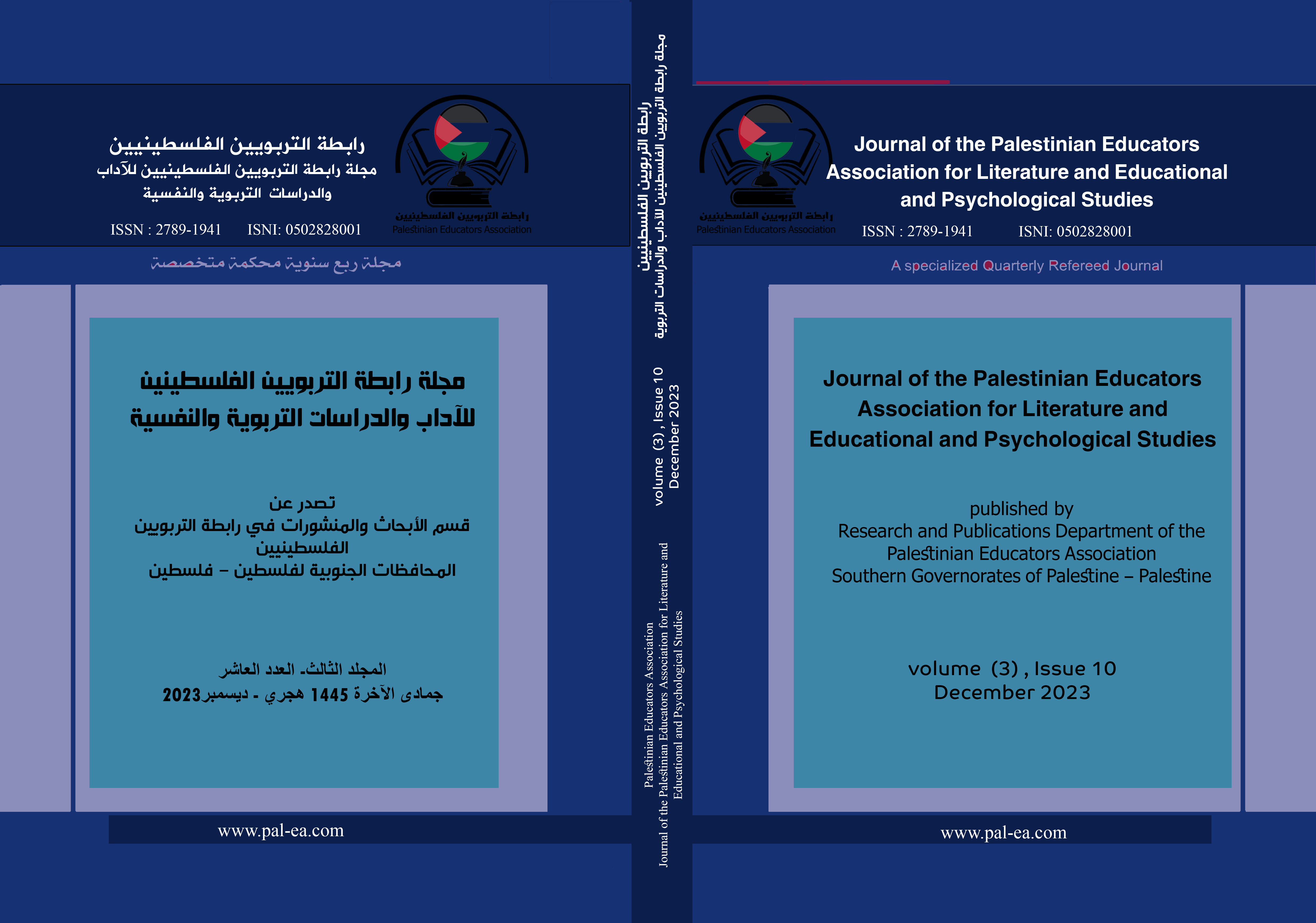Degree of inclusion of Sustainable Development’ dimensions in the content of science and life Textbook for the sixth grade in Palestine from teachers' perspectives
Keywords:
Dimensions of sustainable development, Science and life textbook, sixth grade, PalestineAbstract
(The study aimed to assess Degree of inclusion of Sustainable Development’ dimensions in the content of science and life Textbook for the sixth grade in Palestine from teachers' perspectives. Employing a descriptive-analytical method, the research employed a questionnaire with 34 items covering environmental, social, and economic aspects. The sample consisted of 252 teachers, randomly selected from a total of 1179 for the 2023/2024 academic year. Results revealed a moderate mean score of 2.95, indicating the integration level of sustainable development dimensions overall. The social dimension ranked first, followed by the economic dimension, and the environmental dimension. No statistically significant differences (α ≥ 0.05) emerged in overall integration concerning gender, years of service, and specialization. Nevertheless, across all dimensions, variations linked to academic qualification favored master's degree holders. Gender influenced the environmental dimension, favoring female teachers. For social and economic aspects, differences were tied to years of experience exceeding ten. Lastly, specialization, especially in physics, influenced the environmental dimension).
Downloads
Downloads
Published
Issue
Section
License
Copyright (c) 2024 رجاء روحي سويدان، علياء يحيى العسالي (مؤلف)

This work is licensed under a Creative Commons Attribution-NonCommercial-ShareAlike 4.0 International License.
The Journal of the Palestinian Educators Association for Literature, Educational and Psychological Studies
E-issn: 2789-1941
Authors retain Copyright
The Journal of the Palestinian Educators Association for Literature, Educational and Psychological Studies allows Authors retain Copyright and grant the journal right of first publication with the work simultaneously licensed under a Creative Commons Attribution (CC-BY) 4.0 License that allows others to share the work with an acknowledgment of the work’s authorship and initial publication in this journal.
Provided they are the owners of the Copyright to their work, authors are able to enter into separate, additional contractual arrangements for the non-exclusive distribution of the journal’s published version of the work (e.g., post it to an institutional repository, in a journal or publish it in a book), with an acknowledgment of its initial publication in this journal.
Authors are permitted and encouraged to post their work online (e.g., in institutional repositories, disciplinary repositories, or on their website) prior to
and during the submission process.










